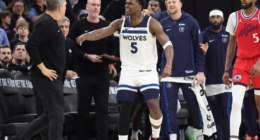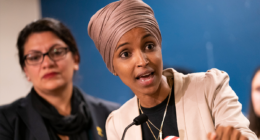Manchester City head a worldwide group of 13 partner clubs, while Red Bull own five football teams in Europe and the Americas. Last month, Chelsea acquired a majority stake in French Ligue 1 club Strasbourg to become the latest major team to move into the business of multi-club ownership.
Have you heard of the Pacific Media Group, King Power International, INEOS or Eagle Football Holdings? They are also multi-club ownership groups with teams in all corners of the globe.
While much of fans’ focus understandably centres on transfers, managerial changes and, when the season starts, results on the pitch, the evolution of the game off the pitch is leading to new thinking within the corridors of power.
Earlier this year, UEFA research showed that more than 180 clubs worldwide were part of a multi-club structure — there were fewer than 40 in 2012 — and over 6,500 players were employed by teams connected to such groups. The release prompted UEFA president Aleksander Ceferin to say that rules may need to be altered to allow for multi-club groups to become even more prevalent.
– Stream on ESPN+: LaLiga, Bundesliga, more (U.S.)
“There is more and more interest for this multi-club ownership and we shouldn’t just say no [to] the investments, and for multi-club ownership,” Ceferin said in March. “But we have to see what kind of rules we set in that case, because the rules have to be strict.”
Last week, UEFA’s Club Financial Control Body (CFCB) accepted the admission to European competition in the 2023-24 season of six clubs, despite a potential conflict of interest due to shared ownership models involving Aston Villa and Vitoria Guimaraes, Brighton and Union Saint-Gilloise and AC Milan and Toulouse. If INEOS owner Jim Ratcliffe wins the race to buy Manchester United from the Glazer family, UEFA will have to make another judgement as to whether United can compete in European competition alongside OGC Nice and Lausanne — the two other clubs owned by INEOS.
Similarly, there will be intense scrutiny of any link between United and Qatar-owned Paris Saint-Germain if Sheikh Jassim Bin Hamad Al Thani becomes the new owner at Old Trafford.
But with RB Leipzig and FC Salzburg already cleared to compete in the Champions League by UEFA in June, despite being owned by the same group, multi-club ownership would seem to be here to stay.
There are still many questions surrounding the idea, however. Who benefits, who are the main players and what are the potential pitfalls?
WHO ARE THE MAIN FOOTBALL GROUPS?
The City Football Group (CFG) is the leader in the field, with 13 teams across the globe: Manchester City, New York City FC (USA), Melbourne FC (Australia), Yokohama F. Marinos (Japan), Montevideo City Torque (Uruguay), Girona (Spain), Mumbai City (India), Sichuan Jiuniu (China), Lommel (Belgium), Troyes (France), Palermo (Italy), Bahia (Brazil) and Club Bolivar (Bolivia).
Red Bull own RB Leipzig (Germany), New York Red Bulls (US), Red Bull Bragantino (Brazil), Red Bull Brasil (Brazil) and FC Red Bull Salzburg.
New City Capital and Pacific Media Group co-own eight clubs — Barnsley (England), Thun (Switzerland), Oostende (Belgium), Nancy (France), Esbjerg (Denmark), Den Bosch (Netherlands), Kaiserslautern (Germany) and Tychy (Poland).
Leicester City’s owners, King Power International, also control Belgian team Leuven, while American businessman John Textor leads Eagle Football Holdings, which controls Crystal Palace, Olympique Lyonnais (France), Botafogo (Brazil), Molenbeek (Belgium) and FC Florida (USA).
Brighton owner Tony Bloom is also the majority owner of Belgian team Union Saint-Gilloise, Aston Villa owners V Sports have a significant stake in Vitoria Guimaraes and AC Milan owners Red Bird Capital also own French side Toulouse.
Chelsea’s owners, Todd Boehly and Clearlake Capital, have made it clear that they want to become major players in the world of multi-club ownership, too.
WHAT IS THE APPEAL OF OWNING MORE THAN ONE CLUB?
There is no central thread or theory to this. Some clubs want to position themselves in various markets (Europe, South America, Asia) to have easier access to emerging talent, while others attempt to dilute risk by owning a number of teams.
CFG, however, owns a number of clubs that feed into one principal team, which ends up being the focus of the operation. Any player signing for one of their 13 teams would ultimately aspire to play for Manchester City, but may spend a number of seasons being moved between one partner club to another.
“There are now just under 300 clubs involved in almost 200 groups, so we have really incredible growth in that space,” said Shiv Jhangiani, head of Strategy and Mergers & Acquisitions at sports consultants Sportsology. “There are two main factors for owners of such groups because an investment in a football club comes with some risk in that if you perform badly in one season, you can get relegated. But if you spread investment across multiple clubs, it can diversify the portfolio and diversify the risk to a certain extent.
“I think there are quite a few players in that space, but there are more from the linked perspective of buying clubs in different strategic areas that offers access to talent on and off the pitch.”
Perhaps significantly, there has been a growth in multi-club ownership since FIFA banned the practice of third-party ownership of players — when an agent or group, rather than a club, owned a player’s economic rights — in April 2015.
Third-party ownership was the practice, widespread in South America, when an agency or group would own the rights to a player’s transfer fees (framed as “economic rights”) and loan them to clubs for a price. The agent or agency controlled the player’s transfer movements instead of the club they played for.
Manchester United signed Carlos Tevez on a two-year loan from his agency, Media Sports Investments (MSI), in 2007. When the Argentina international moved across town to Manchester City in 2009, CFG had to buy his economic rights from MSI.
“Once third-party ownership was sort of outlawed by FIFA, the only way to own the rights of a player asset in the world of football is actually by owning a football club,” Jhangiani said.
WHY ARE SO MANY BELGIAN TEAMS PART OF MULTI-CLUB MODELS?
At the end of last season, reports in Belgium said that the owners of EFL Championship champions Burnley were aiming to acquire a stake in Belgian Pro League team KV Kortrijk from the team’s existing owner, Vincent Tan, who also owns another Championship side, Cardiff City. Newcastle are also reportedly in talks with New City Capital and Pacific Media Group to buy Oostende, who were relegated last season and replaced in the top division by Molenbeek, which is itself part of Textor’s Eagle Football Holdings Group.
At the end of last season, eight of the 18 teams in the Belgian Jupiler Pro League had overseas owners: Four were part of groups aligned to English clubs, while the other four were owned by groups from Qatar, Japan, Turkey and the United States. So why are Belgian clubs such an attractive acquisition for English teams, in particular?
“The requirements to get a work permit to play in Belgium for non-EU players are among the lowest in all of Europe, so players who would not get a permit in England could build up their credentials while playing for a Belgian team,” Jhangiani said. “It’s an easy market to operate in for American or British owners because of proximity, but also advantageous tax laws regarding player wages and how the style of play in Belgium correlates well with the English game.
“The French and Portuguese markets also see high penetration of multi-club structures. France are the biggest exporters of talent in Europe – second only in the world behind Brazil and offer direct access to major African talent hotbeds. Portugal can also be strategic with access to the Brazilian market but the cost of club acquisitions in Belgium is very attractive.”
WHY DID CHELSEA BUY A FRENCH CLUB?
Boehly and Clearlake have a different objective for owning a club outside the Premier League, one that goes beyond merely being an easy access point for players to move to England.
Chelsea have a thriving academy, but the pathway to the first team is blocked by many expensively acquired stars, so Strasbourg gives the club the option of sending their emerging talent to France to gain experience in Ligue 1. It also gives Chelsea a foothold in Europe’s deepest pool of talent and the ability to identify local prospects early. If you offer one of France’s best young players a contract at Strasbourg, you can also dangle the carrot of a move to Chelsea if they live up to their potential.
And with a squad that remains too big for manager Mauricio Pochettino to ensure game time for all, even Chelsea’s experienced players could be farmed out to Strasbourg to remain active while not playing at Stamford Bridge.
MAN CITY (THANKS TO CFG) APPEAR TO HAVE EVERY BASE COVERED THEN?
The CFG controls 13 clubs and more are expected to follow, but the Abu Dhabi-owned group has created a model that develops players for a career in the game rather than specifically for Pep Guardiola’s squad at Manchester City.
“We haven’t seen too many instances of players coming from CFG-owned clubs into Manchester City,” Jhangiani said. “But they have been able to generate returns from players that have come into their clubs and moved on externally to other clubs in the market and made a pretty significant return.
“Player trading has become a very robust revenue stream for clubs that are able to operate it well. The question becomes how do you do that? And I think CFG are definitely experts in that space.”
WHAT ARE THE DOWNSIDES OF MULTI-CLUB OWNERSHIP?
Clubs can be relegated and even CFG had to accept the jeopardy of promotion and relegation when Girona dropped out of Spain’s La Liga in 2019. Relegation means reduced income, players wanting to leave — or having to be offloaded due to costs — and the prospect of supporters protesting due to a perception that their club is only there to service another team in the group.
The Pozzo family have had to deal with such accusations from both Watford and Udinese supporters in recent years. And as Manchester City’s owners discovered when trying and failing to take ownership of Dutch club NAC Breda in 2022, if fans are hostile to the takeover plans, it can lead to disharmony and even failure to complete a sale.
The major concern for owners of high-profile club groups, however, is the risk of one team being barred from the Champions League due to links to another team in the competition. That is yet to happen, but UEFA has regulations in its statute books that could see clubs being kicked out due to having the same people in charge.
UEFA HAS SPOKEN ABOUT REVIEWING OWNERSHIP RULES, SO SHOULD WE EXPECT MORE MULTI-CLUB GROUPS?
It is still highly unlikely that UEFA, or any of the major national leagues and governing bodies, will allow clubs in the same competition to be directly controlled by the same person or group due to the risk of damaging the integrity of the competition.
However, the situation with RB Leipzig and Red Bull Salzburg (known as FC Salzburg in UEFA competition) has given us a precedent in that UEFA cleared both clubs to participate in Europe because, while being owned by the same parent company, they were controlled by distinctly different management structures.
If United are sold, that will be a key test case for UEFA because there are areas of potential conflict of interest with either Ratcliffe’s INEOS group or Sheikh Jassim. But if enough area of separation between connected teams can be proved, then clubs with shared ownership models could proliferate.
Ultimately, two clubs cannot face each other in the same competition if they are controlled by the same entity. And here, control is the key word rather than “owned.”








